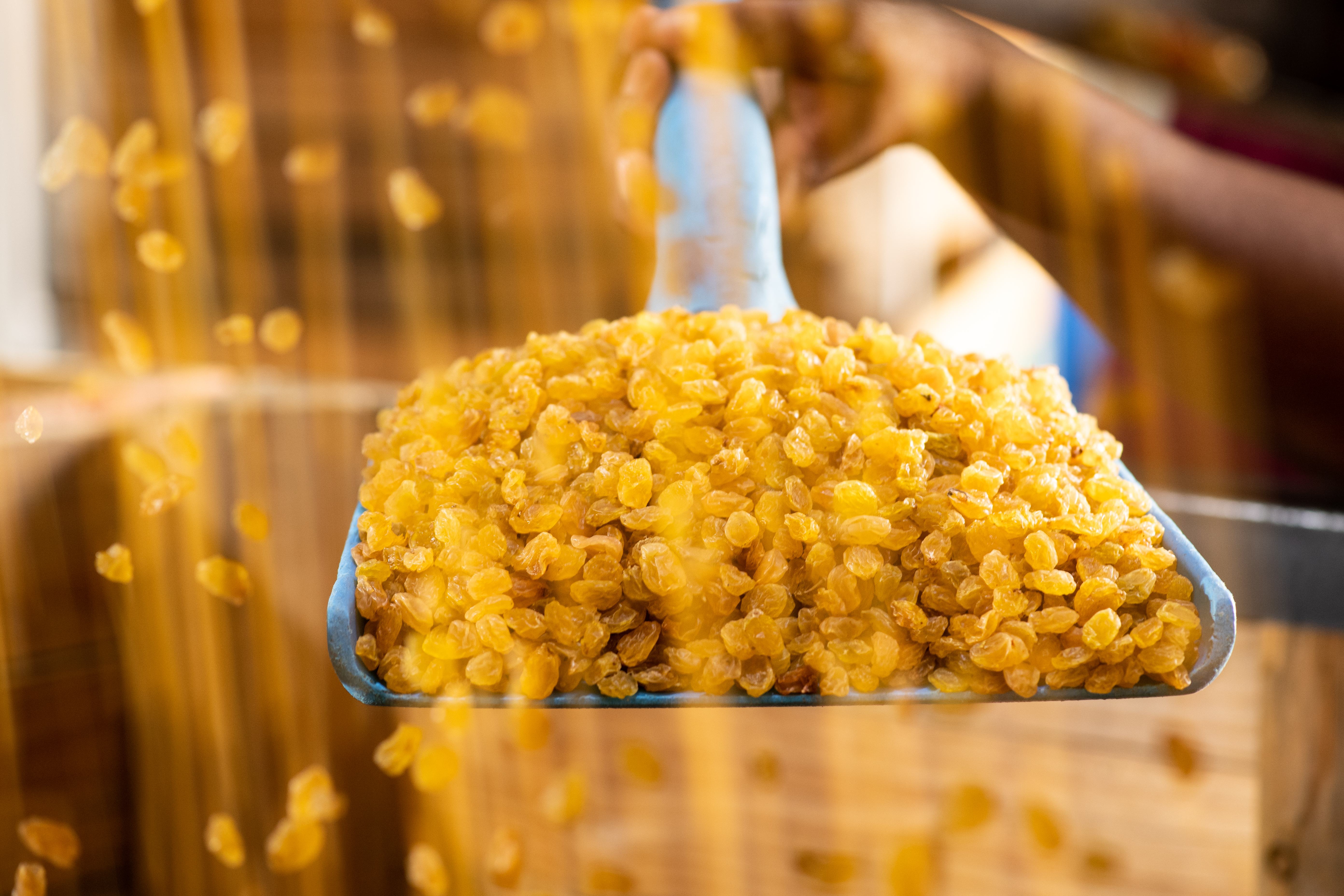The South African raisin industry has a reputation amongst
suppliers for adopting a progressive approach to farming. In
particular the country has, in recent years, placed a
signficant emphasis on ensuring reduced residue levels
within their crops. Indeed, the South African raisin has been
celebrated for being mostly naturally residue free.
These low residue credentials are what sets South African
raisins apart from its international competitors, allowing the
industry to thrive and grow as we see a global trend towards
minimalising residue levels within agricultural processes.
An innovative net-drying process is being used by growers
who are striving to further increase the quality of their crop
in an effective manner. This natural technique of sun-drying
raisin grapes on elevated nets is regulated by compulsory
audits which ensure that all new drying facilities meet the
requisite food safety and quality standards.
Such techniques are ideal in South Africa, where pest and
disease pressure is lower due to the hot, dry climate.
Furthermore, with growers adopting such good biological
practices, fewer chemicals are needed in the agricultural
process, supporting the industry's move towards a more
environmentally conscious future.
Meanwhile, the water for the growing of South African
raisins is sourced locally from the Orange and Olifants
Rivers. And whilst micro, drip and flood irrigation are used,
strict governance requires all farms to adhere to the water
rights limitations helping to keep water wastage to a
minimum.
